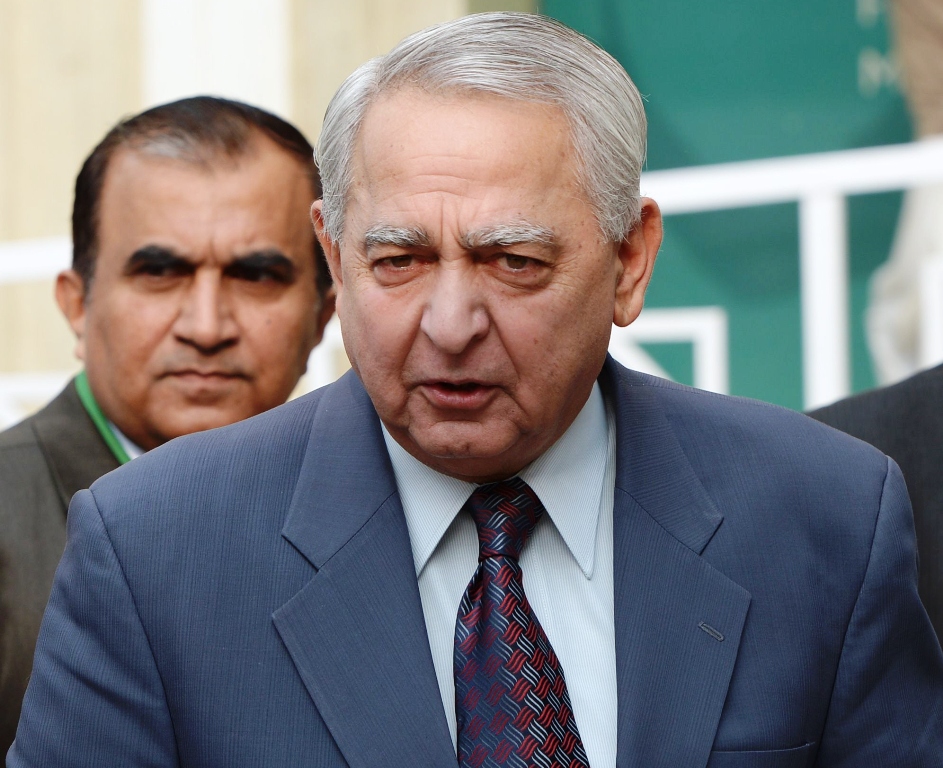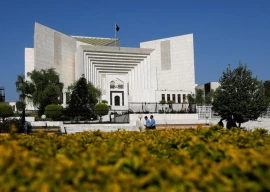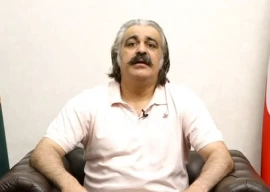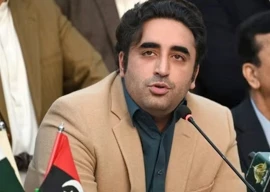
In a missive to the Supreme Court on Saturday, National Accountability Bureau (NAB) chief Admiral (retd) Fasih Bokhari claimed that the petition challenging his appointment at the anti-graft body was now redundant.
The letter, submitted by Bokhari’s counsel Advocate Sardar Latif Khosa, argued that since the petitioner – Pakistan Muslim League-Nawaz leader Chaudhry Nisar Ali Khan – was no longer the leader of the opposition in the National Assembly, it had become redundant. Also since there was no public interest in it, the petition could not be maintained and should instead be dismissed.
A five-member bench of the apex court comprising Justice Tassaduq Hussain Jillani, Justice Anwar Zaheer Jamali, Justice Asif Saeed Khan Khosa, Justice Amir Hani Muslim and Justice Muhammad Ather Saeed will resume the hearing of the case from Monday.
Chaudhry Nisar had petitioned the apex court on October 22, 2011 seeking a declaration against the appointment as void ab initio (illegal from the beginning), saying it was not made by President Asif Ali Zardari in consultation with the leader of the house (prime minister), leader of the opposition or the chief justice.
President Zardari appointed him as NAB chairman on October 16, 2011.
But Bokhari said on Saturday the criterion of appointing him was followed and President Zardari consulted with then prime minister Yousaf Raza Gilani and Chaudhry Nisar in accordance with Rule 6 (i) of the National Accountability Ordinance (NAO) 1999.
“The president had duly adhered to the consultative process by writing a letter to the then opposition leader before appointing Admiral (retd) Bokhari,” the reply noted, adding it was wrong of Chaudhry Nisar to demand from the president to nominate a panel of possible candidates for the chairmanship through mutual discussions while the final nomination be done through a meaningful, purposeful and consensus-oriented consultation.
The letter added the chief of the country’s top anti-corruption body could not be removed from his office midway through his tenure period of four years. The tenure can also not be extended and the chairman can only be removed on the same grounds as the removal of an apex court judge under Article 209 of the Supreme Court through the Supreme Judicial Council (SJC).
In his petition, Chaudhry Nisar had also alleged that the appointment of Bokhari was “tainted with personal motivation on the part of President Zardari and susceptible to manifestation of abuse, not countenance with the constitution as well as the canons of justice, equity and fair play.”
Published in The Express Tribune, May 26th, 2013.

















COMMENTS
Comments are moderated and generally will be posted if they are on-topic and not abusive.
For more information, please see our Comments FAQ